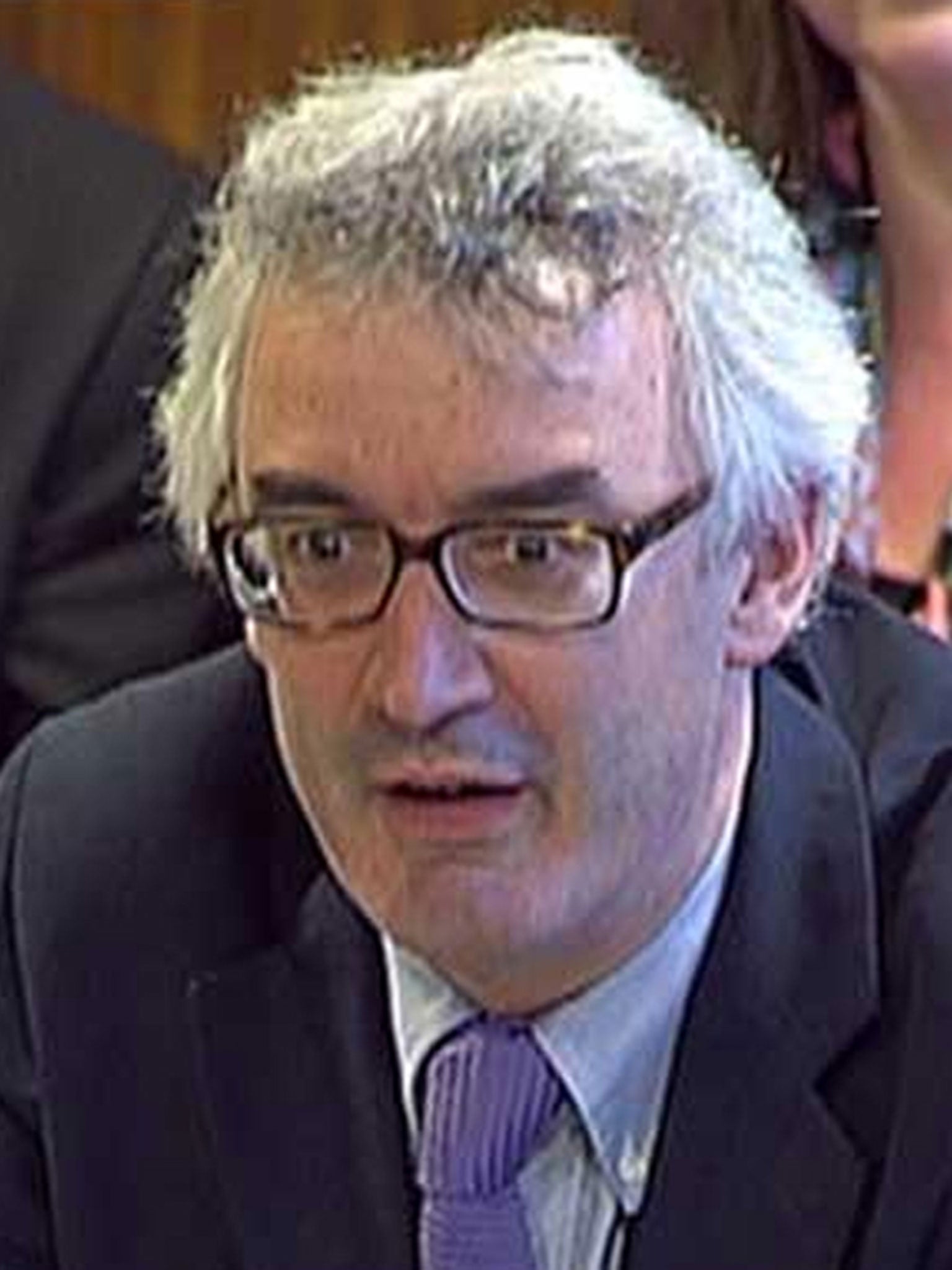It’s too easy to pass through the revolving door between government and business
Parliamentary Business: Sir Nicholas Macpherson should be blocked from appointment at any bank, given the reforms that he helped to oversee

Around this time last year Sir John Sawers, weeks after leaving his position as Britain’s top spook, was given permission to join the board of BP.
Four months later the Advisory Committee on Business Appointments – better known by its sinister sounding acronym, Acoba – published this decision. Acoba vets the appointments of former ministers and senior civil servants but in truth sets pretty much the same standard every time: don’t take up a role for three months after leaving the state’s employment; don’t pass on sensitive information; and don’t lobby government on behalf of the new employer for two years.
In May I argued that Sir John should not have been allowed to join BP – that a recent head of MI6 with, you would hope, a wealth of knowledge of geopolitical intrigue, had no place at the top table of a global oil empire, regardless of the supposed safeguards. The strength of Acoba’s provisions depends on the word of the person involved – and while I have no reason to believe Sir John is anything other than a man of integrity, that simply isn’t good enough assurance.
As the guard of the revolving door between business and government, Acoba is not exactly a bouncer. Perhaps the Labour MP Paul Flynn put it best: “You are supposed to be a watchdog, Acoba, but you are watchdog without teeth or claws.”
Well, this snappy but toothless old dog now has a chance to show it can grow into the snarling, three-headed mutt the country so desperately needs it to be.
On Monday it was announced that George Osborne’s right-hand man, the 56-year-old Sir Nicholas Macpherson, will leave the Treasury in March. By definition, he is one of the civil service’s top officials; by record, he has arguably been the best, lasting nine years and serving both Labour and Conservative chancellors.
He has already co-taught a history of the Treasury course at King’s College, London, so it seems likely Sir Nicholas will look to expand his burgeoning academic career. A friend of his says he is “down to earth, modest, and not obviously into money”.
However, there is little doubt that Sir Nicholas will be targeted by the country’s most powerful boardrooms. From their point of view, why not? He has only been on £200,000 at the Treasury; that might be a salary many of us would kill for, but it would be dwarfed, at least pro rata, by a FTSE 100 company hungry for such an able, experienced person who has been at the heart of guiding the UK through the financial crisis.
Even he is if not driven by money, a well-paid portfolio career of top-level jobs, working with our smartest, most influential business bosses, is going to be of interest. Again, why not? Sir Nicholas has every right to be paid what he is worth and take up the most fascinating opportunities he is offered.
The problem is not with those passing through the revolving door, for their motives are understandable and legitimate provided they have passed through security without hiding anything.
Of greater concern is Acoba. While it is deeply unfair to make an example of any one person, I do think Sir Nicholas, given his profile, would be a good person with whom to start a far more rigorous vetting programme – and yes, that does mean blocking certain appointments.
For example, just as Sir John should not have been allowed to join BP, Sir Nicholas should be blocked from an appointment at any bank, given the regulatory reforms that he helped oversee. If the Treasury mandarin joined BP and the spook went to a bank, there would, perhaps, be less of a problem.
Moreover, the gap between leaving office or the civil service should never be as short as three months: many City firms would laugh at such a piddling period of gardening leave for former employees who know their working practices.
At House of Commons hearing in 2014 on her appointment as Acoba’s chairman, the former Conservative MP Baroness Angela Browning summed up the organisation well when she said it “is not a regulatory body in the sense that we have powers that we can impose on people of our own volition”.
But she added: “We are set rules by the Cabinet Office, and we have to look at each of the cases that are before us in the light of those rules. But those rules are not totally toothless. For example, we apply many restrictions on the applicants to Acoba, and we have the powers to make sure that information is in the public domain.”
“Not totally toothless” – it’s hardly reassuring. And getting information in the public domain only seems to reinforce the notion that Acoba needs far greater powers.
A lot of this is, of course, perception. But the public’s perception of the relationship between business and government is that it is an overly intimate one, fostering the scepticism that voters have about both.
The job for Acoba is to make sure we can believe that relationship is above board, and this task must start with Sir Nicholas Macpherson.
Join our commenting forum
Join thought-provoking conversations, follow other Independent readers and see their replies
Comments
Bookmark popover
Removed from bookmarks